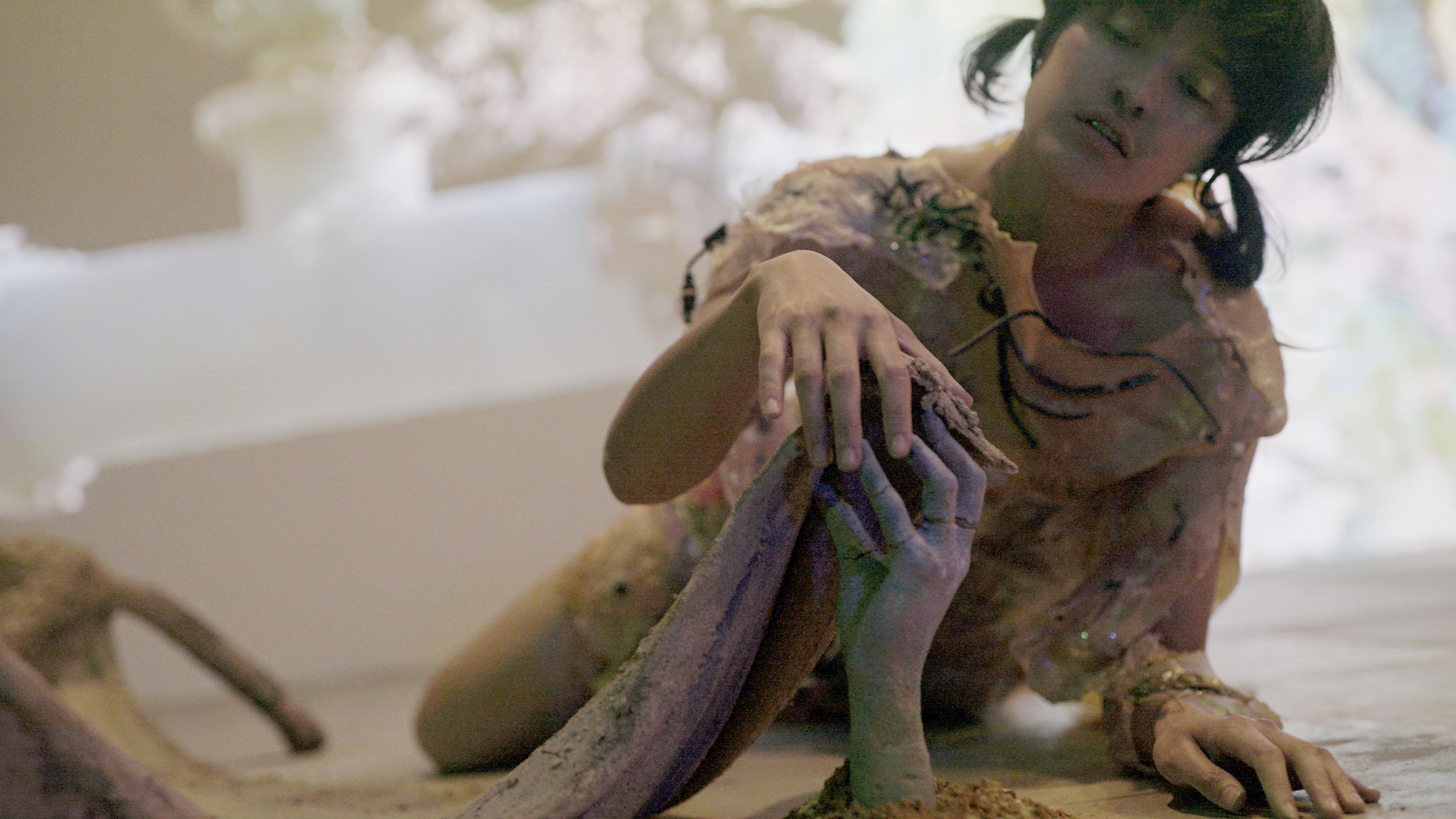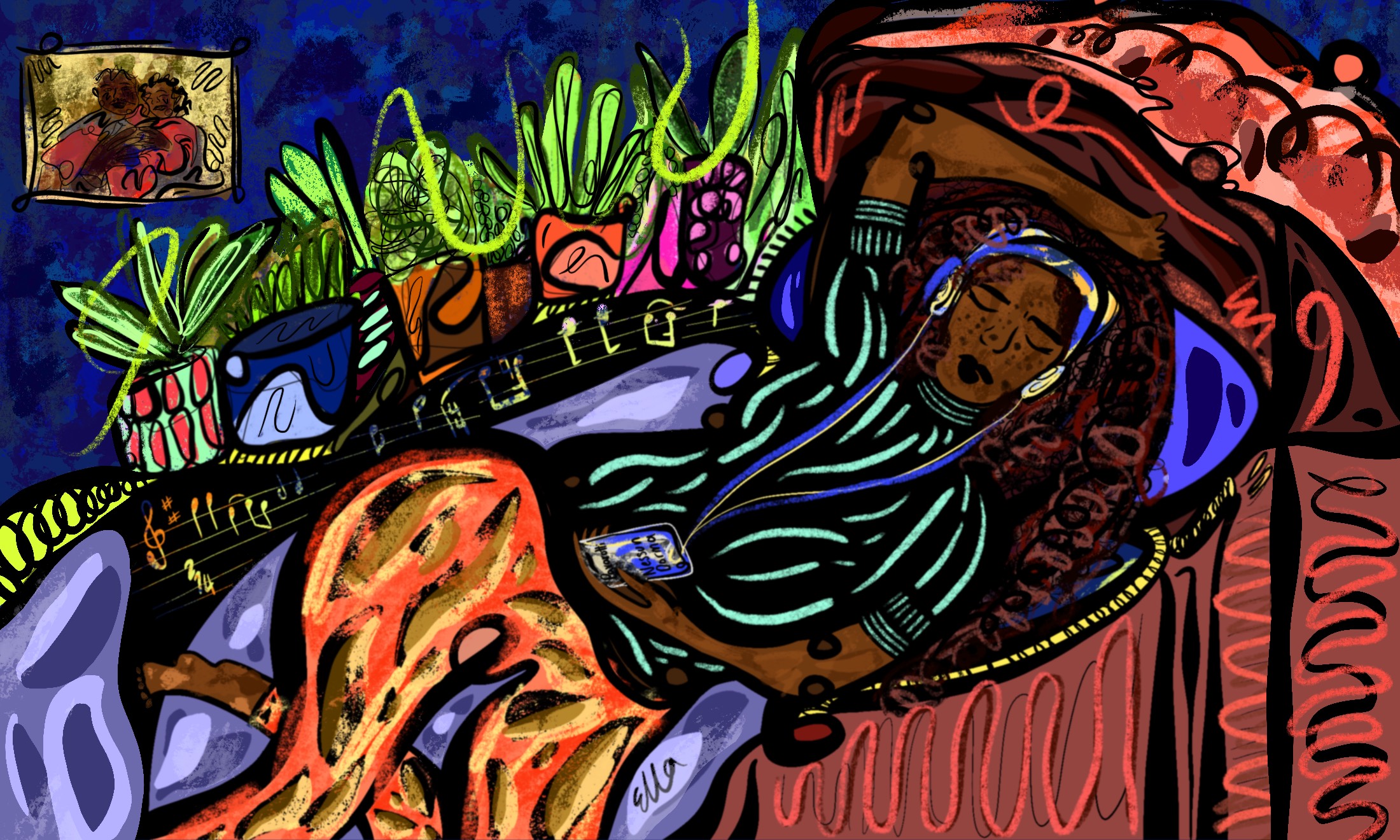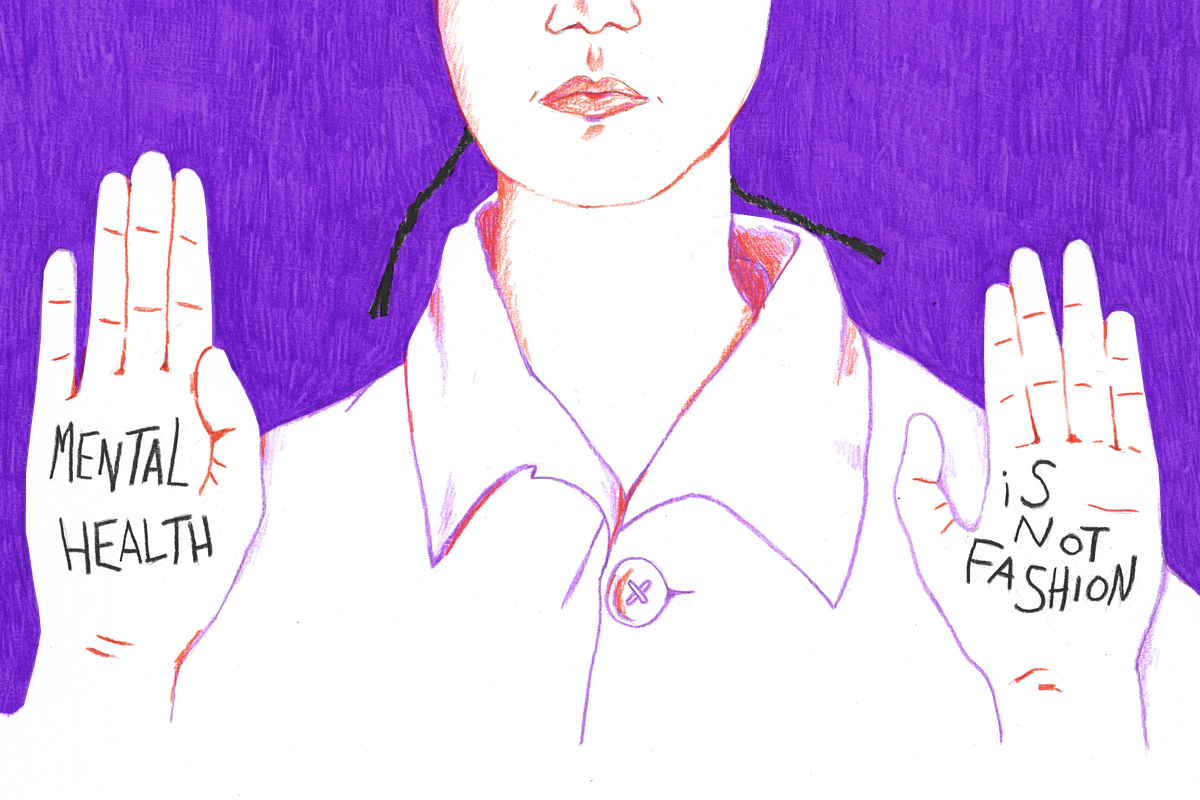
This pop-up opera written by a witch dares you to find optimism in a mythological dystopia
Kemi Alemoru
19 Jul 2019
Photography by Jade Jackman
“Would you like some special magical water?” asks Ayesha Tan Jones with a smile. It looks like normal water, housed in a screw-top plastic container, but it’s been sourced via a natural spring in the countryside near Glastonbury.
The artist, musician, witch, and founder of the feminist self-defence collective Shadow Sistxrs Fight Club, excitedly tells me about what sets it apart from bog-standard London tap water. “Everyone I was with was like ‘where are you going?’ But, the land around there is quite sacred. Lots of witches go there to do rituals and collect the water that bubbles up from the land.” Naturally, they stocked up and brought it back after the festival to their North London studio which houses a mix of alien-like works of art, and Chinese lanterns.
The 25-year-old has an endearing way of looking at the world. Even if a lot of their art focuses on the destruction of the planet as we know it, the allegories are meant to prompt us into being a part of an alternative.
“I call my work ‘optimystic’ dystopia,” Ayesha explains. Their narratives often blend mythology, mysticism, and sometimes their East Asian culture, with ecological warnings to make the audience more conscious of our impact on the planet.
This Saturday, Ayesha will present Parasites of Pangu outside of the Serpentine under Catalpa trees. The trees get a special mention because, once Ayesha searched on Wikipedia, they discovered Catalpa is known for housing some useful parasites used by fisherman. Ayesha felt this was a signal that showed that this performance was “meant to be”. They can often find the larger meaning in the most minute of details, which is evident throughout the show.
“I see all of sound as healing so within this opera I’ve thought closely about the key. The first notes and words that I sing are ‘D E A D’”, they sing in a clear, melancholy voice. “That’s really important for me because chords are letters and symbols and they can create a new word or language. I use 75hz, a certain frequency that inspires grief, and that’s at the beginning.”
Ayesha is Chinese Malaysian and has recently reconnected with their lineage after their first “pilgrimage” back to South East Asia in eight years. Fittingly, this one-off opera is based on a Chinese creation myth about an entity born from a cosmic egg called Pangu (“I call it a genderless ‘shen’ which is Chinese for spirit or deity”), which dies and dissolves into the earth.
“Then they become the earth,” Ayesha explains. “Their voice becomes thunder. Their muscles became the soil, their bones became the rocks, and their eyes the sun and the moon. But, the parasites on Pangu’s body became the humans. That is what my opera is based on, I want to explore toxicity and how humans have a damaging relationship with nature”.
Written in three acts, the play looks at an earth far older than the one we currently live on. One where society has collapsed due to ecological turmoil. In a comment on class and privilege, the only people who thought they could survive this shift were those who could pay for innovative ways to stay alive. The middle classes opt for bunkers, which works for a few hundred years until the tectonic plates move. “They get crushed,” Ayesha explains. Next, are the elite who put themselves into hypersleep by cryogenically freezing their bodies and orbiting the earth in pods that can detect when the conditions stabilised enough for humans to live on earth again.
“I started the opera buried under soil with only my mouth visible. The soil was so heavy that as I came out the soil the plastic bags ripped off and I was left naked”
Ayesha Tan Jones
Ayesha says: “People freeze themselves now, because you can successfully freeze a human body. But, they haven’t figured out how to thaw it so the brain neurons work again. So in the play when the bodies fall biblically from the sky and thaw, they’re all fleshy and gooey, they’re just floppy and gross, twitching and glitching.” When the real eco-apocalypse comes, perhaps not even money will save us. The people who do manage to reanimate are the people they froze to be the new caretakers. “There’s a psychic archaeologist, carers, healers, scientists,” they explain. “When they reanimate they become the new elements of this toxic earth. I, the psychic archaeologist represent the element of spirit.”
It’s an ambitious premise and one that could only come from the mind of Ayesha. They’re planning everything right down to the outfits, which will be intentionally durable due to some mishaps they’ve had with their opera costumes in the past. “Once I spent the whole day sewing plastic bags together which is quite hard and I started the opera buried under soil with only my mouth visible. The soil was so heavy that as I came out the soil the plastic bags ripped off and I was left naked. So I did that opera naked.”
This time though, Ayesha isn’t completely alone in the making of the production. Calling on frequent collaborators such as Monique Etienne from Shadow Sxsters Fight Club, the opera ensemble are people who share Ayesha’s unique vision. For example, one of the performers, named Yodea Williams, struck up a friendship with Ayesha by running up to them in the street to say they could instinctively tell they were both Virgos. This innate connection helps socially and it also means they’re on the same page creatively. Ayesha laughs as they show me footage from the rehearsals where the cast combines fighting choreography with dance to a synth-pop melody.
Through a number of aliases, including a musical alter ego named Yaya Bones, Ayesha has gained a reputation for thinking outside of the box for their surreal and ethereal projects. In a 2017 film and exhibition experience Indigo Zoom, they created a world in which the air on our planet is too toxic to breathe freely. In this parallel universe, the government try to privatise clean air and sell it back to the population for profit. Of course, it’s offbeat and outrageous, but it’s also an astute comment on our increasingly polluted cities, neoliberalism, and our government’s apathy to our plight.
Ayesha has an uncanny ability to balance originality and atypicality with an eco-conscious message. Even the promotional pamphlets for the opera are made of recycled paper, printed by Rabbits Road Press (the team being OOMK zine), which uses an eco-friendly printing alternative of “natural pigments” like soy-based ink.
“I feel overwhelming grief about being part of the generation that is ruining the earth so I have to write about it,” Ayesha says of the strong ethos that underpins their work. With Parasites of Pangu, they’re sure to get that message across.
Parasites of Pangu will be performed at the Serpentine Gallery as part of the Saturdays Live program, July 20. Find out more here.






